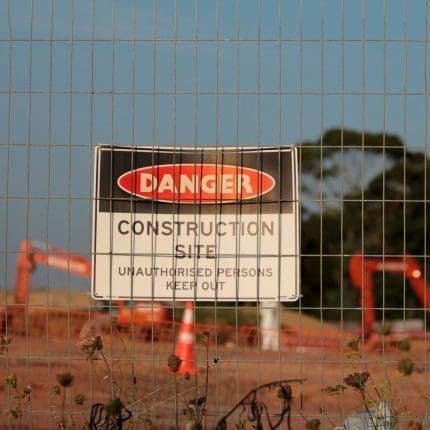- Shop All Documents + Bundles
- FORS V7.1 Document Bundle | Bronze (15 Policies)
- Transport Manager Compliance Pack (10 Policies)
- Transport Manager Compliance Pack (6 Policies)
- Health & Safety Policy Template
- Fuel, Emissions And Air Policy Template
- Operational Security Policy Template
- Serviceability And Roadworthiness Policy Template
- Road Traffic Collision Policy Template
- Counter Terrorism Policy Template
- Load Safety Policy Template
- Vehicle Routing And Scheduling Policy Template
- Driving Standards Policy Template
- Driving Hours Policy Template
- In Cab Technology Policy Template
- Passenger Safety Policy Template
- Complaints And Grievances Policy Template
- Drug And Alcohol Management Policy Template
- Hazard And Risk Identification Policy Template
- VOR (Vehicle Off Road) Policy Template
- Tyre + Wheel Policy Template
- Health & Eyesight Policy Template
- Transport Infringement Policy Template
- Walk Around Check (Defect Check) Tool Box Talk Template
- Transport Manager CV Template
- Social Media Policy Template
- Transport Manager Contract Template
- External Transport Manager Contract Template
- Driver Handbook
Transport UK > Transport Manager Shop > Counter Terrorism Policy Template

Complaints And Grievances Policy Template
£11.00 ex.VAT

Fuel, Emissions And Air Policy Template
£11.00 ex.VAT
Counter Terrorism Policy Template
£11.00 ex.VAT
It is important to maintain actively maintain a robust Counter Terrorism Policy.
⧉ PREVIEW: View our Test Document here to sample the format.
| Brand |
Transport UK |
|---|---|
| Document Format |
PDF [Digital Download] |
| Legislation |
UK Law |
| Transport Manager |
Transport Manager CPC ,Counter Terrorism |
| Document Author |
Transport UK Industry Professionals |
| Technology |
Strictly No Artificial Intelligence (AI) Copywriting |
| How To Edit |
Microsoft Word |
| Product Type |
Digital Product [Downloadable] |
12
People watching this product now!
SKU:
TUK-CTP-01
Category: Counter Terrorism Policy
Tags: Transport Manager Compliance, Transport Manager CPC, Transport Manager Documents, Transport Manager Handbook, Transport Manager Resources
Description
Why do i need this document?
A Counter Terrorism Policy is a crucial document that outlines guidelines and procedures for preventing, preparing for, responding to, and recovering from terrorist activities. This policy is essential to ensure the safety, security, and resilience of the organisation. Here are the reasons why having a Counter Terrorism Policy is important:
1. Safety and Security: The primary focus of a Counter Terrorism Policy is to prioritise the safety and security of employees, customers, and assets. It establishes protocols for identifying and mitigating potential terrorist threats, ensuring a secure working environment.
2. Legal Compliance: The policy should ensure compliance with relevant counter-terrorism laws and regulations. Adhering to legal standards helps to protect the organisation from potential legal repercussions and aligns with national security objectives.
3. Risk Management: The policy should include guidelines for conducting regular risk assessments to identify vulnerabilities and implement appropriate countermeasures. This proactive approach helps in reducing the likelihood and impact of terrorist activities.
4. Emergency Preparedness: The policy should outline procedures for emergency preparedness, including evacuation plans, communication protocols, and roles and responsibilities during a terrorist incident. Preparedness ensures a swift and effective response to minimise harm.
5. Training and Awareness: The policy should emphasise the importance of training and awareness for employees. Regular training sessions on recognising suspicious activities, emergency procedures, and counter-terrorism measures enhance the overall security posture of the organisation.
6. Collaboration with Authorities: The policy should encourage collaboration with law enforcement and counter-terrorism agencies. Sharing information and cooperating with authorities ensures that the organisation is part of a broader security network and can benefit from external expertise and resources.
7. Incident Reporting and Investigation: The policy should establish clear procedures for reporting and investigating suspicious activities and incidents. Prompt reporting and thorough investigations help in preventing potential threats and learning from past incidents.
8. Physical Security Measures: The policy should include guidelines for implementing physical security measures, such as access controls, surveillance systems, and security personnel. These measures act as deterrents and provide additional layers of protection.
9. Cybersecurity: The policy should address cybersecurity measures to protect against cyber-terrorism. Safeguarding digital assets and information systems is critical in preventing cyber-attacks that can disrupt operations and compromise sensitive data.
10. Business Continuity: The policy should include strategies for business continuity in the event of a terrorist incident. Ensuring that critical functions can continue or be quickly restored minimises the impact on the organisation’s operations.
11. Psychological Support: The policy should ensure that employees have access to psychological support and counselling services following a terrorist incident. Providing support helps in managing trauma and maintaining the well-being of affected individuals.
12. Monitoring and Reviewing: A comprehensive policy should include procedures for monitoring and reviewing the effectiveness of counter-terrorism measures. Regular audits and updates ensure the policy remains relevant and effective in addressing evolving threats.
A well-structured Counter Terrorism Policy is crucial for organisations as it ensures the safety and security of employees, customers, and assets. By establishing clear guidelines and expectations, the policy contributes to a secure working environment, enhances preparedness and resilience, and aligns with national security objectives. The policy should be regularly reviewed and updated to ensure it remains relevant and effective in mitigating the risk of terrorism.
Reviews (0)
Only logged in customers who have purchased this product may leave a review.
How does it work?
We will deliver this digital document (PDF) instantly to you by email when you purchase it.
- Purchase
- Download
- Add your company logo/details
- Adjust/tailor to your requirements
- Be compliant
⧉ Want to try before you buy? View our Test Document here to sample the format in which our documents are made available to you.
Templates you can trust
Our templates are written by transport professionals with a combined 100 years experience in the industry, managing complex and large fleets.
Strictly NO artificial intelligence (AI) copywriting is used in our policies and documents.
You may also like…
Transport Manager Compliance Pack (6 Policies)
Driving Hours Policy, Driving Standards Policy, In Cab Technology Policy, Road Traffic Collision Policy, Tyre + Wheel Policy, VOR (Vehicle Off Road) Policy, Compliance Document Bundles
Rated 5.00 out of 5
Related products
FORS V7.1 Document Bundle | Bronze (15 Policies)
Complaints And Grievances Policy, Counter Terrorism Policy, Driving Hours Policy, Driving Standards Policy, Fuel, Emissions And Air Policy, In Cab Technology Policy, Load Safety Policy, Operational Security Policy, Passenger Safety Policy, Road Traffic Collision Policy, Serviceability And Roadworthiness Policy, Tyre + Wheel Policy, Vehicle Routing And Scheduling Policy, Compliance Document Bundles
Rated 5.00 out of 5














Reviews
There are no reviews yet.